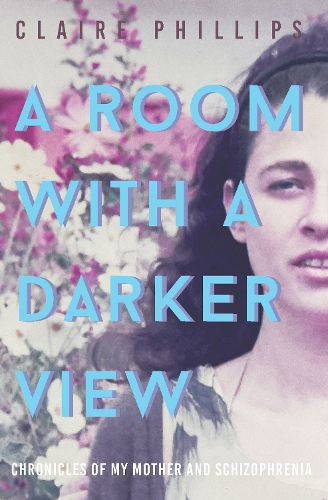Readings Newsletter
Become a Readings Member to make your shopping experience even easier.
Sign in or sign up for free!
You’re not far away from qualifying for FREE standard shipping within Australia
You’ve qualified for FREE standard shipping within Australia
The cart is loading…






‘Unsurprisingly, feminists have been at the forefront of writing illness narratives, from Virginia Woolf to Audre Lord and Susan Sontag. My family’s inability to accommodate my mother’s illness, the perniciousness of her particular subtype of schizophrenia, paranoia, and the story of women’s fight for gender equality in both the workplace and at home are part of this chronicle.’
A Room with a Darker View is an unflinching, feminist work that chronicles the author’s troubled relationship with her mother, an Oxford-trained lawyer, whose severe illness - marked by manic bouts of senseless laughter, persistent delusions, and florid hallucinations - went unrecognized for decades by both her husband, a world-class British astrophysicist, and her father, a Jewish-Zimbabwean doctor knighted by Pope Paul VI.
Told in fragments, flashbacks, and chronicling the most extreme but unfortunately common aspects of schizophrenia, this elegantly written memoir is a reflection on illness, shame, and the generation gaps that have defined mother-daughter relationships amid the evolution of feminism in the 20th century. Like Porochista Khakpour’s lauded memoir, Sick (2018), A Room with a Darker View is not a linear tale of redemption or restitution. Rather, it challenges conceptions about mental illness and how we frame contributions by outliers to society, while offering a scathing look at a broken medical system, the unwillingness of an elite educated family to reckon with its secrets, and finally, the universally understood difficulty of caring for an aging parent with a chronic illness.
$9.00 standard shipping within Australia
FREE standard shipping within Australia for orders over $100.00
Express & International shipping calculated at checkout
‘Unsurprisingly, feminists have been at the forefront of writing illness narratives, from Virginia Woolf to Audre Lord and Susan Sontag. My family’s inability to accommodate my mother’s illness, the perniciousness of her particular subtype of schizophrenia, paranoia, and the story of women’s fight for gender equality in both the workplace and at home are part of this chronicle.’
A Room with a Darker View is an unflinching, feminist work that chronicles the author’s troubled relationship with her mother, an Oxford-trained lawyer, whose severe illness - marked by manic bouts of senseless laughter, persistent delusions, and florid hallucinations - went unrecognized for decades by both her husband, a world-class British astrophysicist, and her father, a Jewish-Zimbabwean doctor knighted by Pope Paul VI.
Told in fragments, flashbacks, and chronicling the most extreme but unfortunately common aspects of schizophrenia, this elegantly written memoir is a reflection on illness, shame, and the generation gaps that have defined mother-daughter relationships amid the evolution of feminism in the 20th century. Like Porochista Khakpour’s lauded memoir, Sick (2018), A Room with a Darker View is not a linear tale of redemption or restitution. Rather, it challenges conceptions about mental illness and how we frame contributions by outliers to society, while offering a scathing look at a broken medical system, the unwillingness of an elite educated family to reckon with its secrets, and finally, the universally understood difficulty of caring for an aging parent with a chronic illness.